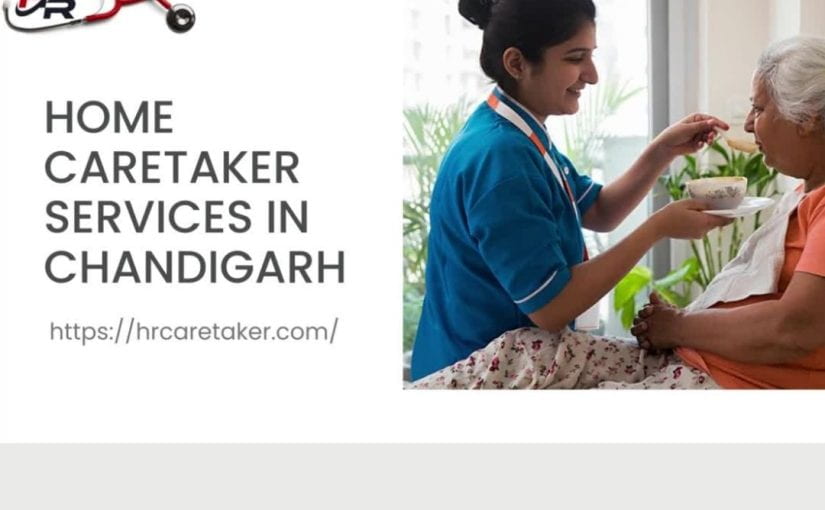Do you have a loved one who needs help with daily activities but wants to remain in the comfort of their own home? If so, hiring a caretaker may be the solution you’ve been searching for. While it’s not always an easy decision to entrust someone else with your loved one’s care, there are countless benefits that come with having a professional caregiver in the home. In this blog post, we’ll explore why hiring a caretaker for patient at home near me is so important and how they can improve your loved one’s quality of life while providing peace of mind for you and your family. So let’s dive in!
The Importance of Hiring a Caretaker for Your Loved One at Home
Hiring a caretaker for your loved one at home can provide them with the necessary assistance and support they need while you are away. A caretaker can help with things like bathing, dressing, eating and walking, as well as providing companionship and help with day-to-day tasks.
A caretaker should be someone who is experienced in caring for people with dementia or Alzheimer’s disease. They should also have a good understanding of the needs of people with those conditions, as well as strong communication skills. It is important to select someone who will work closely with your loved one and who has access to their medical records.
The benefits of having a caretaker for your loved one at home include:
• Reduced stress for you – Having someone to take care of your loved one during your absence will reduce the amount of stress that they experience. This person will know what needs to be done in order to keep your loved one comfortable and safe, and they will be able to communicate this information clearly to you.
• Reduced costs – Hiring a caretaker can save you money on groceries, medications and other expenses related to taking care of your loved one. Additionally, having someone around who understands dementia or Alzheimer’s disease can make it easier for you to communicate with your loved one.
• Increased quality of life – A caretaker can help improve the quality of life for your loved one by providing companionship and assistance with daily activities.
Types of Caretakers
Hiring a caretaker for your loved one at home can be an important decision, depending on the individual and the condition of their health. There are a few different types of caretakers that may be best for your loved one.
Primary Caregiver: A primary caregiver is someone who is responsible for taking care of all the daily tasks associated with caring for a person who has significant cognitive or physical limitations. This could include bathing, dressing, feeding, managing finances and medications, and communicating with healthcare providers.
Home Health Aid: A home health aid is an individual who provides basic personal assistance to people in their own homes. This might include performing light housekeeping tasks such as laundry and shopping, fetching medication or meals from a grocery store, or helping with ADLs (activities of daily living).
Personal Assistant: A personal assistant helps to manage all aspects of life for a person who has special needs. This could include coordinating appointments and activities; handling finances; providing transportation; managing communication; and acting as a go-between with family and professionals.
How to Hire a Caretaker
Hiring a caretaker can provide peace of mind for both the caregiver and the loved one they are caring for. Caregivers who have someone to help them manage their loved one’s daily routine find that they have more time to do things they enjoy. Hiring a caretaker can also be helpful in relieving the burden on the family members who are typically responsible for taking care of an aging loved one. Here are some tips on how to hire a caretaker:
- Research your options. There are many qualified, compassionate individuals available to help with elderly care. It is important to find someone who shares your personal values and interests, as well as meet the specific needs of your loved one.
- Discuss your expectations with the caretaker. It is important that both parties understand their roles and responsibilities before any agreement is made. Make sure you have a list of tasks and duties that will need to be fulfilled, as well as a schedule of when those tasks will happen.
- Set up an interview schedule. Once you have chosen a potential caregiver, it is important to set up an interview session so you can get to know them better and discuss your loved one’s needs and preferences.
- Negotiate terms clearly and concisely. It is important to be clear about what you expect from the caregiver, including hours worked, reimbursement rates, etc. Be prepared to negotiate if there are any discrepancies between what
What to Expect from a Caretaker
When it comes to caring for a loved one at home, there are many things to expect from a caretaker. A caretaker will likely be on-call 24/7 in case of an emergency and will be responsible for taking care of the person’s needs both physically and mentally. They may also need to provide transportation and grocery shopping, as well as other basic needs like bathing, dressing and eating. In order to find the perfect caretaker for your loved one, it is important to consider their qualifications and personality. Additionally, make sure you have a set plan in place should anything go wrong.
Conclusion
I hope that this article has shown you the importance of hiring a caretaker for your loved one at home. A caretaker panchkula can provide stability and peace of mind for both you and your loved one, which is invaluable when it comes to preserving their health and well-being. If you are considering hiring a caretaker for your loved one, be sure to read our tips on finding the right person and interviewing them thoroughly. We wish you all the best in securing the perfect caretaker for your loved one!

